Goodbye Deponia marks the third and final entry in the point-and-click adventure series from German developer Daedalic. The titular world of Deponia is facing imminent doom and destined to be destroyed by the villainous Organon, who are also trying to invade the space station Elysium. There are a lot of factions and characters to absorb in this final installment, so it's highly recommended that you have some experience with Deponia and Chaos on Deponia before jumping in here.
However, I'm not sure it would be worth your time. I'm a fan of classic adventure titles in the LucasArts mold, as I imagine most are. I have fond memories of games like Maniac Mansion and Indiana Jones: Fate of Atlantis. Despite some obtuse puzzle-solving and frustration, these are beloved titles that expertly wove adventure and humor into the narrative while still giving players a lot of options and things to do.
Goodbye Deponia gets part of that formula right. I enjoyed most of the puzzle elements, which can be broken down into two categories. The first consists of classic adventure game puzzles that involve gathering items in an area, combining items, and figuring out what to do with the items. There are some inventive solutions, along with a number of occasions where I was suitably stumped. Thankfully, there were no huge leaps in logic, so if you're thorough in searching and talking to various characters, you'll eventually understand what needs to be done.
To aid with that, inventory management is a breeze, and everything you do in-game can be controlled with the mouse. You can bring up your inventory by scrolling down on the mouse wheel, select objects with a left-click, and then scroll the mouse wheel up to close your inventory. You're never swamped with items despite having a hefty number of inventory spots. If you can't use an item or can't combine items, lead character Rufus makes that perfectly clear with a quip or two.
The second puzzle type comes in the form of minigames. These are spaced out a bit, so they don't wear out their welcome, but they're pretty inventive and engaging. There are classic switch puzzles, where you press a series of buttons to light up various spots on a board, and you need to hit the right combination to make everything light up at once. A more interesting puzzle example comes from a security room filled with surveillance cameras. The player must control Rufus to make the cameras follow you around the room while another character attempts to sneak by unseen. I appreciate that Daedalic tossed in a hint and skip option for these events, allowing you to bypass them altogether if they were too frustrating.
It's a shame that all the puzzle-solving, point-and-click fun is marred by the characters and world surrounding it. The biggest offender is the protagonist, Rufus. This probably isn't surprising to those who have played the last two installments, but Rufus is about as unlikeable as a hero can get. He is entirely self-centered, egocentric, crass, and difficult. The concept of him actually having — and keeping — friends is a larger stretch in logic than anything presented by the puzzles. I could make a list of Rufus' actions in Goodbye Deponia that would land him on top of many "worst villain" lists. The final nail in the coffin comes from the end sequence, when Daedalic decides to redeem Rufus in a way that's so sudden and out of character that it doesn't make a lick of sense.
The biggest offender is during a sequence where you're controlling multiple versions of Rufus spread across three locations on Deponia. One location is in a backwater town rooted in the underground sewer system. Within this area, Rufus comes across a group of orphaned children who begin to follow him around. At one point, you pass by the trailer of a man who's clearly meant to be a sexual deviant or pedophile, and you tell the kids to stay there because Rufus doesn't want to deal with them while he interacts with other characters. Later, you inadvertently feed most of these children to a slime monster when you set up camp within its mouth.
Another sequence in the same area involves an organ grinder and his monkey — but the monkey is a person, and he's one of two non-Caucasian characters in the game. The second is female, but you'll eventually sell her into slavery to become the new monkey when the old one takes on the role of organ grinder. There are also a couple of poorly handled transgender moments, and the general attitude toward women throughout the game is pretty poor. I have pretty thick skin, but there's no lesson learned or redeeming arc to these moments. They only serve as a way to make Rufus the hero of the day, continuing his string of selfish acts with no motivation beyond proving that he can save the world.
Considering Rufus and his ability to trample on the well-being of just about everyone around him, it makes it difficult to believe that he would want to save Deponia in the first place. His infatuation with Goal, the female co-star, is often expressed in lecherous innuendo and juvenile advances. She still inexplicably falls in love with him by the end, and that makes absolutely no sense.
Basically, Rufus is such an unredeemable anti-hero that it makes the entire experience of Goodbye Deponia a complete wash. There's a good game under all the muck and mire spread throughout the story, but it's impossible to ignore the ugly elements around you. Even if you can, the payoff to committing these deplorable acts is nonexistent. The final sequence is abrupt and surprising but not in a good way.
Even the humor is poorly done, and although that isn't surprising in light of everything else, much of the story hinges on you finding something funny, and chances are you won't. I'm not sure if there's something lost in the translation from German to English, but there are very few jokes that elicit a smile, and virtually none evoke laughter. As a case in point, there are some awful musical interludes between acts, where a folksy singer relays a poorly rhymed tune to accompany the transition.
In an effort to end things on a positive note, Goodbye Deponia is a pretty nice-looking game. The 2-D art style looks pretty great, and I enjoyed the character and world designs. The animation could be bit more fluid, especially during cut scenes, but the visual design is clearly one of the few things that Goodbye Deponia gets right. While the dialogue and plot aren't great, the voice acting is surprisingly not bad, but unfortunately, that cannot be said of thesoundtrack.
Unfortunately, Goodbye Deponia is a wasted effort by Daedalic because it's marred by a series of bad moral decisions, and the protagonist is the epitome of unlikeable. There are some good gameplay elements, but I wouldn't want to play through this game again. If you're hoping for some sort of redeeming arc for Rufus after the last two Deponia entries, you'll be disappointed. If you were hoping for a fun, humorous callback to adventure games of yesteryear, you'll be disappointed in Goodbye Deponia for that, too.
Score: 4.0/10
More articles about Goodbye Deponia



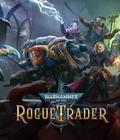
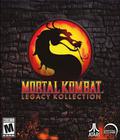
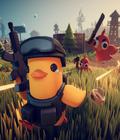



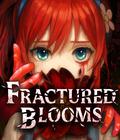

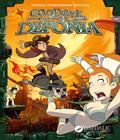 Goodbye Deponia is fast-paced comedy of errors and a very unusual love story, telling the romantic and funny story of Rufus and his "home," a junkyard.
Goodbye Deponia is fast-paced comedy of errors and a very unusual love story, telling the romantic and funny story of Rufus and his "home," a junkyard.





























